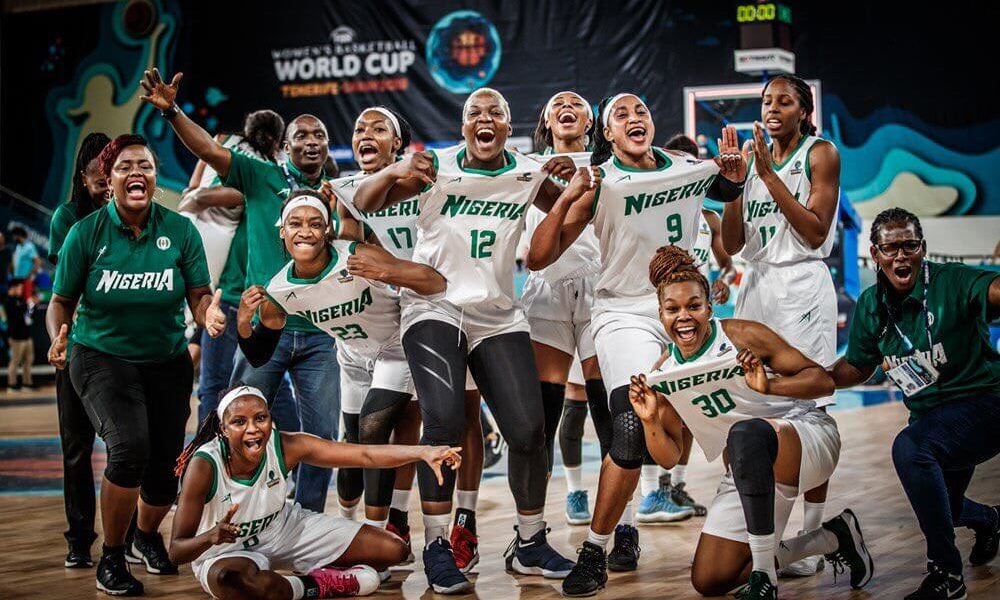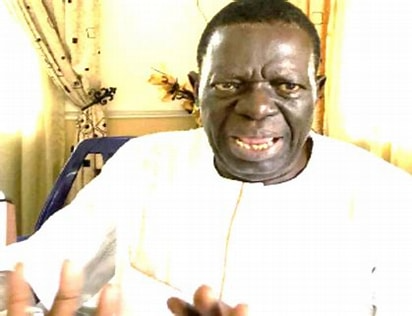
By Osayande Ero
On August 3, 2025, Nigeria’s women’s national basketball team, D’Tigress, made history once again by defeating Mali 78–64 in the final of the FIBA Women’s AfroBasket Championship at the Palais des Sports de Treichville in Abidjan, Côte d’Ivoire. With this victory, D’Tigress claimed a record-breaking fifth consecutive AfroBasket title, becoming the first nation ever to achieve such a feat. This victory also extended Nigeria’s AfroBasket unbeaten streak to 29 games, a dominance that dates back to 2015. With seven total titles under their belt 2003, 2005, 2017, 2019, 2021, 2023, and now 2025.Nigeria has solidified its position as the most dominant force in African women’s basketball.
The campaign began with a commanding group-stage performance. Nigeria faced Rwanda in their opening game and quickly made a statement with a 92–45 victory. Amy Okonkwo led the scoring with 18 points as the team displayed cohesion, depth, and tactical superiority. In their second game against Mozambique, D’Tigress were tested. Mozambique led at halftime, but Nigeria staged a strong second-half comeback to win 60–55. Ezinne Kalu contributed 16 points, Murjanatu Musa secured a double-double, and Promise Amukamara added 13 points to help Nigeria retain their top spot in Group D and remain unbeaten.
D’Tigress stepped up their performance in the quarterfinals, crushing Cameroon 83–47 in a show of force. They jumped to an early lead in the first quarter and then shut down Cameroon with a remarkable 25–2 third-quarter run. Amy Okonkwo again starred with 18 points and six rebounds, while Elizabeth Balogun, Nicole Enabosi, and Victoria Macaulay all contributed meaningfully. This win also secured Nigeria’s place in the semifinals and earned them a spot in the 2026 FIBA Women’s Basketball World Cup qualifiers.
In the semifinals, Nigeria faced Senegal, one of their most consistent rivals in African basketball. It was a tightly contested battle with Senegal gaining a brief lead in the third quarter. However, Nigeria responded with urgency and tactical maturity, outscoring Senegal 23–10 in the final quarter to clinch a 75–68 victory. Ezinne Kalu led all scorers with 19 points, backed by Amukamara’s 16 and contributions from Okonkwo and Macaulay. With that win, D’Tigress booked their place in the final and moved a step closer to history.
The final against Mali began with tension, as Mali took an early 26–21 lead. At halftime, the game was tied 41–41, setting the stage for a decisive second half. Nigeria found their rhythm in the third quarter, pulling ahead 61–56, and then completely took over in the fourth, limiting Mali to just eight points while scoring 17. The final scoreline of 78–64 sealed their place in the record books and reaffirmed their reign as African champions. This victory also granted them automatic qualification for the 2026 Women’s Basketball World Cup.
The team’s success is a testament to the leadership of head coach Rena Wakama, who has guided D’Tigress since 2023. Her emphasis on discipline, strategic rotations, and player development has ensured the squad remained both hungry and prepared. Equally critical to the team’s success is the support from the Nigeria Basketball Federation, led by Musa Kida, whose leadership and investment in women’s basketball have helped sustain their high-performance levels.
Beyond the court, D’Tigress’s triumph has had a broader national and cultural impact. Nigerian political leaders, including Speaker of the House Tajudeen Abbas and Deputy Speaker Benjamin Kalu, praised the team’s achievement, describing it as a landmark moment for women’s empowerment and a source of immense national pride. The players have not only become role models in sport but also icons of resilience and leadership for Nigerian youth, especially girls aspiring to break barriers.
Nigeria’s win also reinforces their position as the gold standard for women’s basketball in Africa. No other team has won five AfroBasket titles consecutively, and their undefeated streak in the tournament since 2015 is unmatched. Their progress mirrors their historic 2024 Olympic quarterfinal run in Paris the first by any African basketball team, male or female which marked the country’s emergence on the global basketball scene.
Looking ahead, D’Tigress will aim to convert their continental dominance into consistent global performance. Their place in the 2026 FIBA Women’s Basketball World Cup qualifiers offers them another chance to challenge the world’s best teams. With rising stars like Amy Okonkwo, Promise Amukamara, and Murjanatu Musa who earned a training camp contract with the WNBA’s Phoenix Mercury Nigeria is poised to make a mark beyond Africa.
However, sustaining this legacy will require more than just talent. Continued investment in youth development programs, infrastructure, and international exposure will be critical in ensuring long-term success. The team’s victories are as much a result of their on-court skill as they are of the growing support structures around women’s basketball in Nigeria.
In winning their fifth consecutive AfroBasket title, D’Tigress have not only cemented their place in basketball history but also inspired a generation. Their journey is a story of excellence, perseverance, and national pride. They have proven that with structure, belief, and the right leadership, African women’s basketball can stand tall on any stage in the world.
